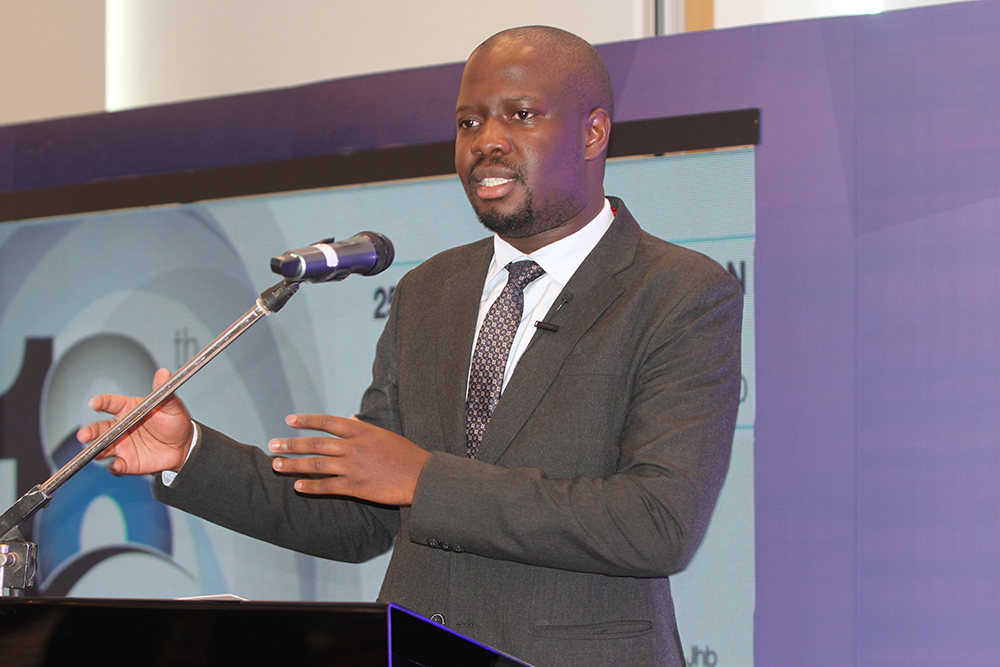As we reflect on 25 years of competition enforcement, we must acknowledge that competition law has been a vital tool in transforming South Africa’s economy and opening new avenues for inclusive growth. This was said by the Deputy Minister of Trade, Industry and Competition, Mr Zuko Godlimpi, during the two-day 18th Annual Competition Law, Economics and Policy Conference that started in Johannesburg today.
The conference, which hosted by the Competition Commission and the Competition Tribunal under the theme “25 Years of Competition Enforcement: Looking Back to Look Forward”, brings together thought leaders, policymakers, and industry stakeholders to assess the role of competition law in reshaping South Africa’s economic landscape.
In his keynote address, Deputy Minister Godlimpi highlighted the significant strides made since the dawn of democracy, but emphasised that the country’s journey to economic inclusivity was far from complete.
“When we ushered in democracy in 1994, it was clear that the high levels of economic concentration and exclusion in our markets needed urgent reform. Prior to 1994, anti-competitive practices were deeply entrenched in South Africa’s economy, often by law, as part of a broader strategy to respond to international economic sanctions and present a thriving image of the country. This created barriers to entry for small businesses and led to inflated costs for South African consumers,” he said.
Godlimpi pointed to the passing of the Competition Act in 1998 and the commencement of competition authorities in 1999 as pivotal moments that aimed to dismantle these harmful practices. He stressed that the Act recognised that economic concentration and exclusionary practices hinder growth and development. Competition policy, therefore, became a key instrument for promoting equality, lowering barriers for small businesses, and encouraging inclusive participation in the economy.
In reflecting on the government’s efforts over the past 25 years, Godlimpi highlighted several high-profile merger cases, such as Walmart/Massmart and AB InBev/SABMiller, where competition authorities ensured commitments to employment protection, localisation, and support for black-owned small businesses in supply chains. However, he stressed that competition policy alone was not enough.
“Our focus must now be on deepening the impact of competition enforcement by ensuring that it fosters a fundamental change in ownership patterns and increases the participation of small businesses and township enterprises in the mainstream economy. It is on these auspices that I call for a renewed commitment to cooperation between government entities, regulators, and the private sector to enable sustainable transformation and inclusive growth,” said Godlimpi.
Looking to the future, Godlimpi urged competition authorities to prioritise enforcement in sectors critical to industrialisation and growth. He also underscored the importance of using policy tools such as exemptions to allow firms to collaborate in ways that support South Africa’s export-led growth strategy, without falling into anticompetitive practices.
On the rising costs of living disproportionately affecting low-income households, Godlimpi highlighted the role that competition authorities can play in addressing this challenge.
“By focusing on preventing anticompetitive practices and curbing harmful mergers, competition policy can continue to contribute towards lowering the costs of essential goods and services, which is particularly important for vulnerable households,” he added.
Godlimpi’s keynote address set the stage for discussions over the remaining day of the conference, where stakeholders will evaluate the successes and challenges of competition enforcement and explore the future role of competition policy in driving economic growth and transformation.

The Deputy Minister of Trade, Industry and Competition, Mr Zuko Godlimpi, delivering keynote address during the 18th Annual Competition Law, Economics and Policy Conference Celebrating 25 Years of Competition Enforcement in Johannesburg.
For RSVps, media enquiries and interview requests:
Bongani Lukhele – Director: Media Relations
Tel: (012) 394 1643
Mobile: 079 5083 457
WhatsApp: 074 2998 512
E-mail: BLukhele@thedtic.gov.za
Issued by: The Department of Trade, Industry and Competition (the dtic)
Follow us on X: @the_dtic
https://www.facebook.com/thedtic
https://www.youtube.com/@thedtic

